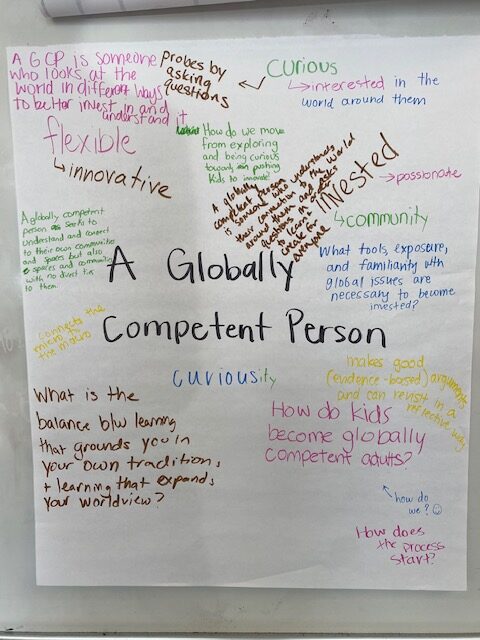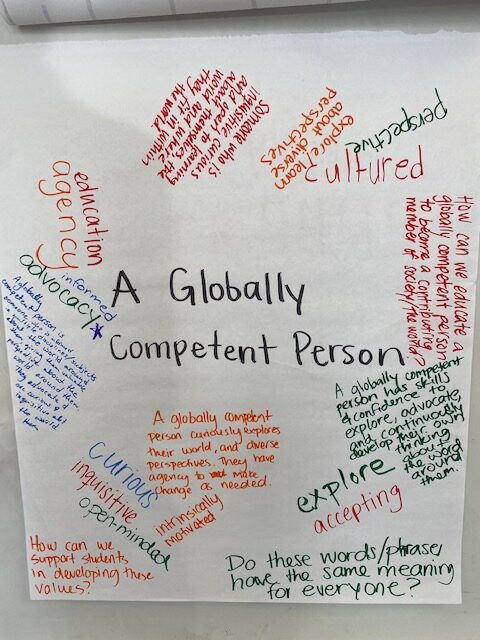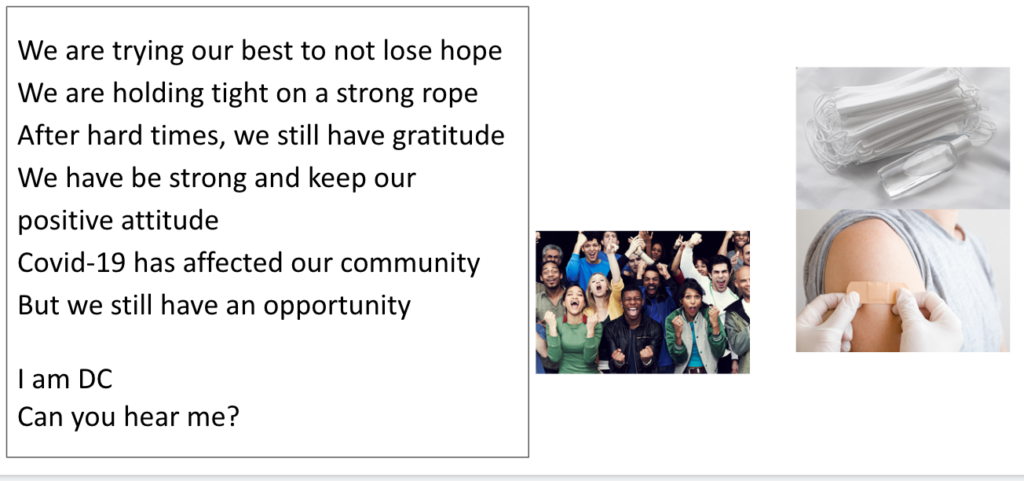Unlocking Student Potential with a Global Competence Framework
Katie Bell is a 4th grade teacher at H.D. Cooke Elementary School (DCPS) and a long-time WISSIT faculty member.
What does an antiracist, student-centered curriculum look like? How can we ensure that our students, many of whom are English language learners, have access to meaningful, globally competent learning experiences? How do we cultivate opportunities for all students to show what they know and who they are in our classrooms, celebrating their learning differences?
These are the questions that drive the work of the Global Studies Professional Learning Community (PLC) at H.D. Cooke Elementary.
A group of creative and passionate Cooke teachers gather after school twice a month to build a vision for global competence in our students, explore pedagogical tools to teach for global competence, and collaboratively plan units. Our work began with creating our own profiles of a globally competent person. Then, we looked closely at the global competence framework and considered how investigating the world, recognizing perspectives, communicating ideas, and taking action connected to our understanding of global competence.


Before planning new units around these global competencies, we reflected on how they already show up in our classrooms. Teachers shared examples of lesson plans, projects, and student work in which students were asked to investigate the world, recognize perspectives, communicate ideas, and take action. Below are a few examples:


Teachers then chose a unit to rewrite, focusing on using meaningful content to build global competence in students. Our units are well underway as PLC participants continue to meet, working hard to determine the essential understandings of their units, select texts that reflect the many identities of their students, and plan culminating projects that invite students to take creative and meaningful action.
Among the projects brewing are a fourth grade fractions project that asks students to submit a favorite family recipe and show how they might double or triple it for various group sizes. Students will receive a copy of the class cookbook at the end of the unit, and celebrate their understanding with a potluck. Third grade teachers are reimagining their unit about Washington, D.C., considering how they might invite students to tell their story of D.C. The final product will be a D.C. guide created by students to be featured in neighborhood libraries, bookstores, and cafés.
We can’t wait to see where this work takes us and our students as we continue to gather and create a curriculum that prepares our students to think critically and recognize their agency. We look forward to sharing our projects and reflections with the PZ community as we launch our units this spring!
